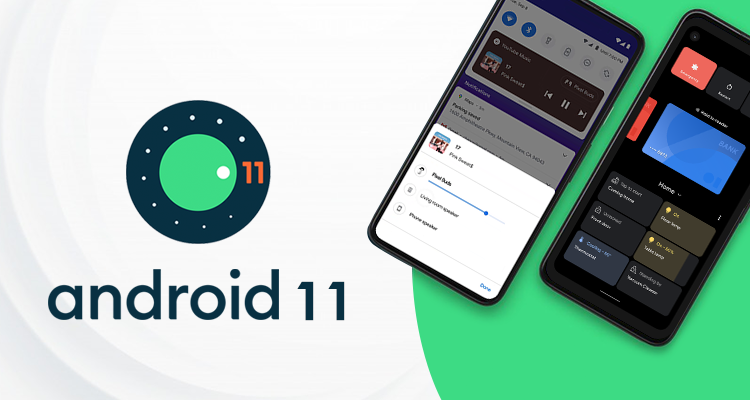Android 11 for Developers

Finally, Android 11 is here. It is the 18th version of Android Mobile Operating System. This new version was released on September 8, 2020. The alphabetical naming strategy has been already ended with the release of Android 10 that’s why new brand is released as Android 11. The logo of Android 11 is quite interesting a dial tuned to 11 that refers to the music docucomedy film This Is Spinal Tap.
Before, the final release there is three monthly developer preview builds to be released before the first beta release in May. The platform stability is planned in July, finally released on September 8.
The 1st preview was released on February 19 as a factory image for supporting Google Pixel smartphones. The 2nd preview was released on March 18, Developer Preview 3 on April 23. Google released an unexpected Developer Preview 4 on May 6, the whole roadmap for Android 11 was set on June 3 as a first beta release.
Android 11 compatible phones
There are some phones that are compatible with Android 11
- Google Pixel 2/ 2 XL
- Google Pixel 3/ 3 XL
- Google Pixel 3a / 3a XL
- Google Pixel 4 / 4 XL
- Google Pixel 4a
- Xiaomi Mi 10 / Mi 10 Pro
Android 11 features
1. Built-in screen recording
Android 11 has built-in screen recording so you don’t need an extra app. And can capture what’s happening on your phone. You can also record with sound from your mic, your device or both.
2. Select and share just got easier
You can select text from your apps. Grab the images too. In Pixel devices, it is very easy to copy, save and share info between many apps.
3. New conversations tab
Android 11 support “chat bubbles,” basically your chat bubbles are just quick shortcuts for conversations you’re having in your various messaging apps.
4. Helpful tools that predict what you want.
Android 11 makes app suggestions that change based on your routine. Smart folders are useful to organize your apps.
5. Media Controls
Android 11 can provide switch from your headphones to your speaker without missing a beat.

6. You control what apps can access.
One-time permissions : Only one-time permissions to apps that need your mic, camera or location. It must ask for permission again the next time the app needs access.
Permissions auto-reset : You may not want it to keep accessing your data if you haven’t used an app in a while. So for your unused programs, Android can reset permissions and permissions can still be switched back on.
Android has grown rapidly over the past years becoming the most used smartphone operating system in the world. Want to build a career in IT! Visit our website : www.stepskochi.com

